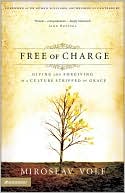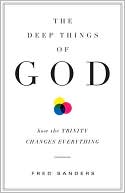At this point, you might be thinking I disagree with Alcorn. You’d be incorrect. While I find some of his interpretations a bit off, overall I think he is right. But I didn’t come to that position easily. Basically what follows from this point on are my thoughts on eternal rewards.
Degrees of Reward
This point is essential to establish. Just to observe that there is a “reward” for Christians isn’t sufficient to argue for “eternal rewards” in the sense that I am speaking. All Christ followers will receive the reward of eternal life. The question is are there degrees of reward. I believe the Bible gives a big nod to that one. But before I delve into the evidence, let me preface by saying that I realize this raises some objections which will be dealt with in due time.
There are several lines of texts that I want to look at, but the first are those found in Jesus’ Sermon on the Mount in Matthew. In first part of Matthew 6, Jesus warns against performing righteous acts like giving, praying, and fasting in order to confirm the suspicions of your adoring fans that you are indeed a spiritual giant. Rather Jesus commends righteousness done in secrecy, for “your Father who sees in secret will reward you.” The problem isn’t reward hunting. It’s just hunting in the wrong spot. The faux spiritual gurus hunt for it in human applause. We are instead to seek for in God. Jesus concludes: “Do not lay up for yourselves treasures on earth . . . but lay for yourselves treasures in heaven”(Matthew 6:19-20). So here Jesus could have said something like, “Guys, stop being so economical. Doing good to get a payoff! It’s just disgusting.” But he doesn’t condemn economics; he encourages them. He just says we need to stay in the right marketplace.
The second line of texts are what I call performance evaluation passages. Texts like Revelation 22:14: “Behold, I am coming soon, bringing my recompense with me, to repay everyone for what he has done.” Jesus doesn’t say we have to give an account (though other passages suggest that); he says he is going to distribute payments for what we have done. Or read this text:
Let each one take care how he builds upon it. 11 For no one can lay a foundation other than that which is laid, which is Jesus Christ. 12 Now if anyone builds on the foundation with gold, silver, precious stones, wood, hay, straw— 13 each one's work will become manifest, for the Day will disclose it, because it will be revealed by fire, and the fire will test what sort of work each one has done. 14 If the work that anyone has built on the foundation survives, he will receive a reward. 15 If anyone's work is burned up, he will suffer loss, though he himself will be saved, but only as through fire.Some scholars argue that the reward is eternal life and the loss is eternal punishment (i.e. hell). But the one who “suffers loss” will be “saved.” So the “loss” is apparently not incompatible with salvation.
(1 Corinthians 3:10-15)
The third line of texts are Jesus’ parables of the talents or minas (found in Matthew 25:14-30 and Luke 19:12-27). Biblical scholars uncomfortable with eternal rewards often point out that there is a lot of unquestioned faulty interpretation of texts discussing rewards. Generally, I agree with that assessment, and these parables are a case in point. We tend to notice that the guys who double their money for the master are rewarded, and the guy who buries his money in the ground gets no reward. But Jesus goes a bit further than that. Jesus says the coward is a “worthless servant . . . cast into the outer darkness. In that place there will be weeping and gnashing of teeth.” To be a worthless servant for Jesus doesn’t just mean the loss of a reward. It means eternal death. Jesus’ point is that his true servants (i.e. those called by God, filled with his Spirit, and destined for resurrected life with Jesus) do something with what they are given for Jesus. Implication: If you are not doing anything for Jesus, then you’re not a true servant. So what does this text have to do with rewards. A lot. Because at the end of the day, there are two faithful servants and there are two different rewards. In the Luke parable, one servant is put over ten cities and the other is put over five cities. Sounds like degrees to me.









No comments:
Post a Comment